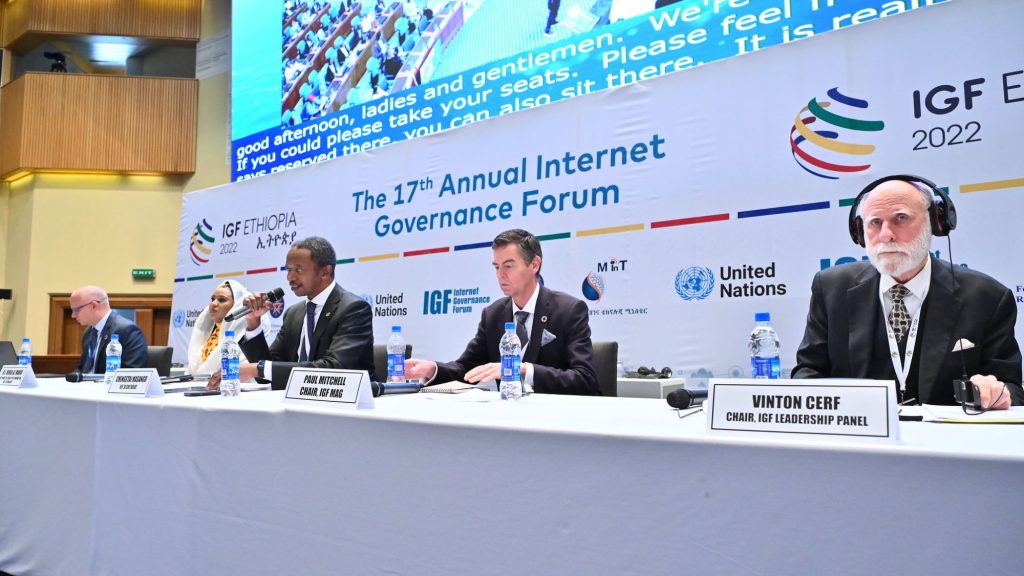We all have them. Those apps we open without thinking. Not because we need anything in particular, but because they feel… safe, in some…
Invest in resilient internet for sustainable growth in Africa

African countries have been urged to invest in building resilient internet infrastructure to tap digital opportunities and accelerate social and economic transformation on the continent.
Global leaders attending the 17th Internet Governance Forum in Addis Ababa, Ethiopia, underscored the importance of digital technologies as tools for enhancing development across Africa.
“The internet’s contribution to social development is immense, the democratization of knowledge and communication, access to entrepreneurship skills and new employment opportunities health care access and education are a few noteworthy ones,” Abiy Ahmed, prime minister of Ethiopia, said.
However, Ahmed added that there is need for cautioned optimism around ownership of critical digital infrastructure, data governance and cyber security as data governance was about harmonizing roles of the digital ecosystem to spur economic development while protecting individual rights.
United Nations secretary general Antonio Guterres told participants that while digital technologies were transforming lives and livelihoods, they were outpacing regulations and exacerbating inequalities around the world.
He called for a human-centred digital future based on a resilient internet that is open, inclusive, and secure for all in line with his proposed Global Digital Compact. The proposed Global Digital Compact aims to deliver universal connectivity, close the digital divide and reach the millions of people who are not connected to the internet.
“The safe, secure human-centred digital space begins with the protection of free speech, freedom of expression and the right to online autonomy and privacy,” said Guterres, emphasising that governments, private companies and social media platforms have a responsibility to prevent online bullying and misinformation that undermines democracy, human rights and science.
“We need to work for a safe, equitable and open digital future that does not infringe on the privacy or dignity,” Guterres urged.
Acting executive secretary of the Economic Commission for Africa (ECA), Antonio Pedro, said reducing the digital divide is essential to building new pathways for rapid economic growth, innovation, job creation and access to services in Africa.
“Harmonising regulations to remove barriers to connectivity both within African nations and across the continent is crucial,” said Pedro, explaining that harmonised regulations will facilitate the operationalization of the African Continental Free Trade Area (AfCFTA). The AfCFTA is key to Africa’s food and energy security and foster competitiveness through economies of scale and improved market access.
Statistics show that an estimated 871 million people are not connected to the internet in Africa and access was even limited in rural areas. Though 70% of Africa’s population technically has access to mobile internet, less than 25% are making use of the internet due to the high cost of mobile internet across the region, Pedro noted.
“The lack of digital and literacy skills is another key barrier to achieving digital inclusion,” said Pedro, adding that “these skills gaps have been further exacerbated by the Covid-19 pandemic, where the expansion of online education, e-healthcare, e-commerce and remote work, have left a large portion of the population without internet access even further behind.”
He said the need for meaningful digital connectivity to boost sustainable development, particularly for the Least Developing Countries (LDCs), has never been more urgent. Despite this, Africa has made some progress in promoting digital access.
For instance, in Ghana, a business-to-business e-commerce platform, Agrocenta, connects 10 000 farmers with buyers, allowing farmers to secure a higher price for their production. In Guinea, Clinic-O, a start-up, is providing digital healthcare to rural Guinea and Kenya has introduced coding classes for school going children.
“Now is the time to double down on our effort to close the digital infrastructure gap, and to leverage digital technologies to power key initiatives in support of achieving a greener and more inclusive digital world, and a just and sustainable development for all,” said Pedro, remarking that a multi-sectoral approach in realizing a resilient and unfragmented internet in Africa was key.
“The implementation of digital technologies should progressively and continually mirror key principles of inclusion, representation and accessibility… Private sector involvement to spur digital development, specifically infrastructure development, will leapfrog socio-economic development.”
Addressing the participants, Li Junhua, UN under-secretary-general for economic and social affairs, said the internet is a springboard to rescue the Sustainable Development Goals through digital empowerment.
“Digital technologies and the internet are serving as engines of growth and providers of essential services including the support to e-government and growing economies,” said Junhua.
“The digital frontier is where the truly transformational power will be realized and the important space for accelerating projects towards the SDGs.”

